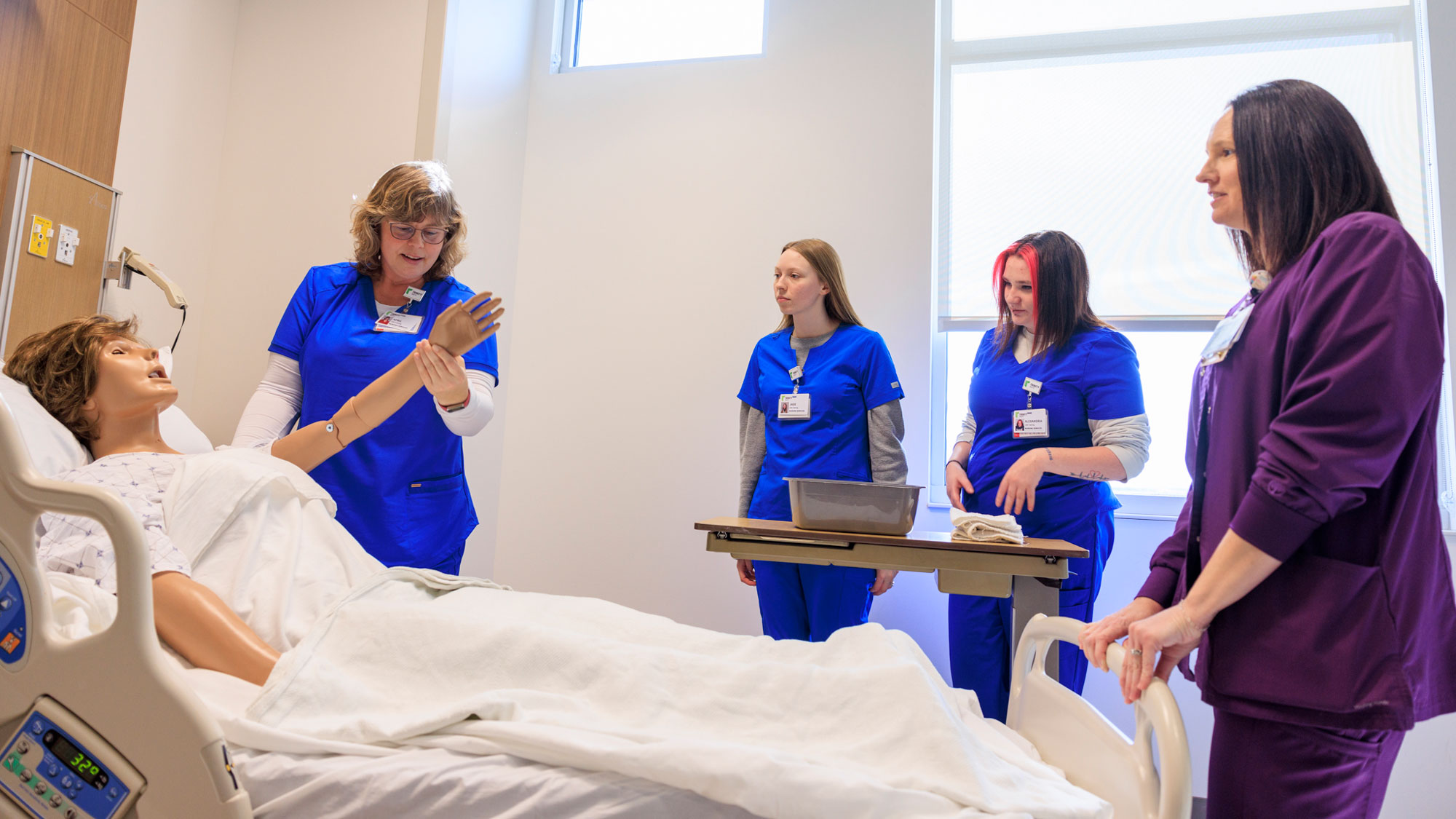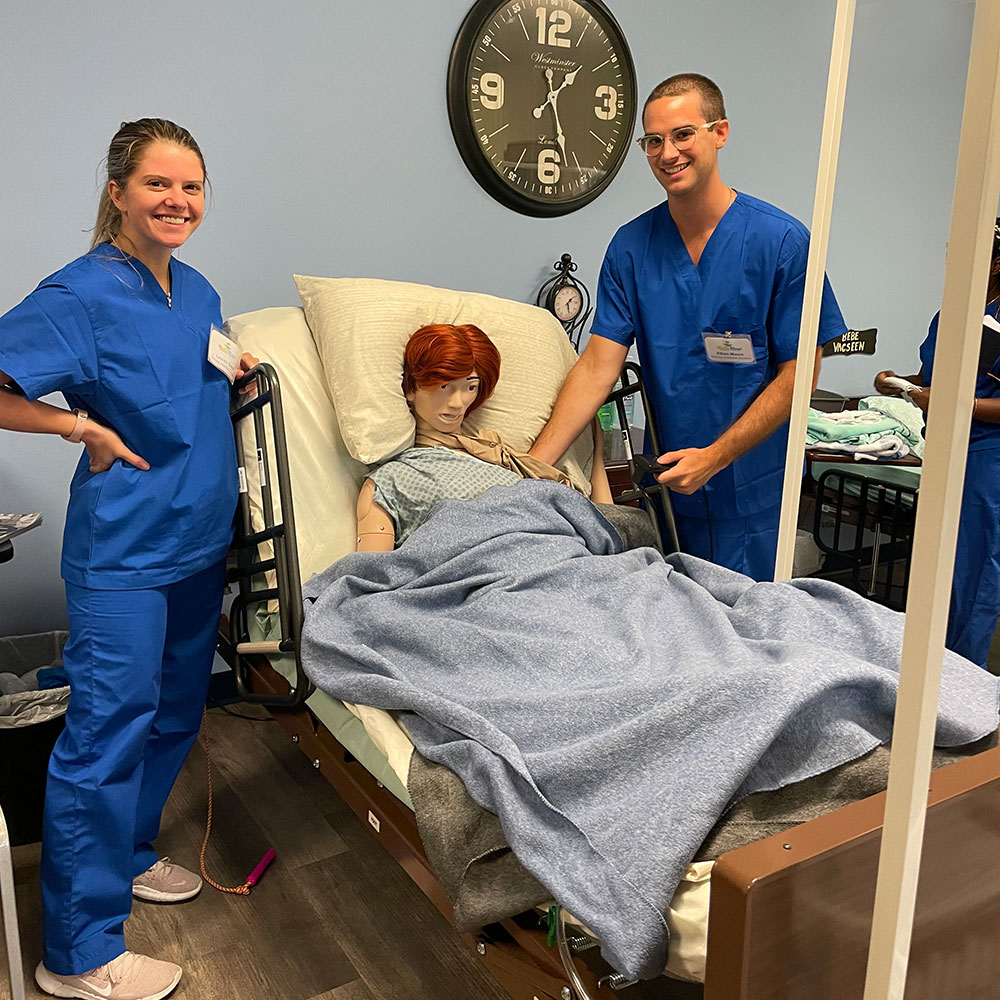How CNA Classes Prepare You to Work in Hospitals
Wiki Article
How CNA Courses Can Aid You Launch a Successful Profession in the Clinical Area
CNA courses work as a fundamental tipping rock for people aspiring to enter the medical field (CNA Classes). These programs convey important skills, including efficient communication and personal care techniques. Pupils participate in hands-on training, linking theory with functional application. As the requirement for healthcare professionals grows, the role of a Qualified Nursing Aide ends up being significantly substantial. This raises questions concerning the different occupation paths and development chances that exist in advance for those that complete their trainingUnderstanding the Role of a Licensed Nursing Aide
The role of a Licensed Nursing Assistant (CNA) is integral to the healthcare system, working as an essential web link between patients and clinical personnel. CNAs primarily aid individuals with daily tasks such as bathing, clothing, and consuming, ensuring their convenience and self-respect. They are typically the very first point of call for patients, supplying indispensable emotional assistance and companionship. Along with personal treatment, CNAs are accountable for keeping track of people' important signs, reporting adjustments in condition to taking care of team, and preserving client records. Their jobs include making certain cleanliness in individual environments and helping with mobility. This duty needs a thoughtful attitude, strong communication skills, and the capacity to work efficiently under pressure. By assisting in a smooth process within health care setups, CNAs play a substantial part in enhancing the general patient experience and supporting the more comprehensive medical group in providing high-grade care.Secret Abilities Gotten in CNA Courses

Furthermore, CNA programs stress personal treatment skills, including aid with daily living activities such as showering, dressing, and feeding. CNA Classes. Infection control techniques are an additional important part, ensuring that students comprehend how to keep a safe atmosphere for both people and themselves
Pupils obtain expertise in standard medical terminology, assisting in far better understanding of medical care techniques. Time monitoring abilities are cultivated to aid CNAs prioritize jobs effectively. Overall, these essential abilities form the structure for a successful career in the clinical area, preparing pupils to satisfy the diverse demands of individuals.
The Advantages of Hands-On Training
Getting functional experience through hands-on training is vital for striving CNAs, as it bridges the space between academic understanding and real-world application. This immersive understanding technique enables trainees to establish essential skills required for individual treatment, such as efficient communication, empathy, and technical capabilities. Participating in real-life scenarios permits students to understand the dynamics of a health care environment, fostering confidence in their capacities.In addition, hands-on training assists students come to be knowledgeable about crucial tools and procedures, guaranteeing they are well-prepared for the difficulties of the job. It additionally offers chances to receive prompt responses from trainers, improving the discovering experience. By functioning straight with patients under supervision, aspiring CNAs can develop their empirical skills and learn to react to numerous circumstances properly. Ultimately, hands-on training gears up these future healthcare professionals with the capability and assurance needed to succeed in their functions.
Job Opportunities After Becoming a CNA
Many job possibilities wait for people that complete their CNA training, opening More Help doors to various duties in the healthcare market. Certified Nursing Assistants (CNAs) are vital participants of the medical care group, giving direct patient care in settings such as healthcare facilities, taking care of homes, and aided living centers. Their obligations can useful content include aiding with everyday living tasks, checking vital signs, and offering emotional support to individuals.Beyond typical setups, CNAs might additionally locate possibilities in specialized locations, such as recovery centers or home healthcare. Furthermore, some might move into functions in management assistance or individual campaigning for, leveraging their direct experience with individuals. The demand for CNAs continues to grow, driven by an aging population and an enhanced focus on quality patient care. This high need warranties that people going into the field have a range of options to pursue, making it an appealing entry point into a rewarding job in medical care.
Paths for Improvement in the Health Care Field
Innovation in the medical care field offers several paths for individuals looking for to boost their professions beyond the duty of a Certified Nursing Aide (CNA Classes). After gaining experience, many CNAs opt to seek additional education and certifications, such as coming to be a Certified Practical Nurse (LPN) or Registered Nurse (REGISTERED NURSE) This shift typically involves enlisting in connecting programs that identify their existing abilities
In addition, continuous specialist advancement through workshops and workshops can keep CNAs upgraded on market requirements, making them much more affordable candidates for development. Consequently, the health care area supplies numerous methods for development, allowing CNAs to shape their occupation trajectories successfully.
Regularly Asked Questions
For How Long Do CNA Courses Normally Take to Total?
CNA courses generally take in between 4 to twelve weeks to finish, depending upon the program framework. Factors such as program strength, organizing, and the institution's curriculum this page layout can influence the general period of training.What Is the Expense of CNA Training Programs?
The cost of CNA training programs differs extensively, normally ranging from $300 to $2,000. Elements influencing this expense consist of area, program length, and whether the training is provided via community colleges or private organizations.Are Online CNA Courses Available?

What Is the Qualification Exam Process Like?
The qualification exam procedure usually entails a written test assessing understanding and an abilities demonstration. Candidates should pass both elements to come to be licensed, ensuring they satisfy the essential competencies required for nursing aide roles.Do I Required Previous Health Care Experience to Enlist in CNA Courses?
Prior health care experience is not a requirement for signing up in CNA classes. Individuals from various backgrounds can enter the program, as it is designed to supply detailed training and expertise needed for effective accreditation and practice.Report this wiki page